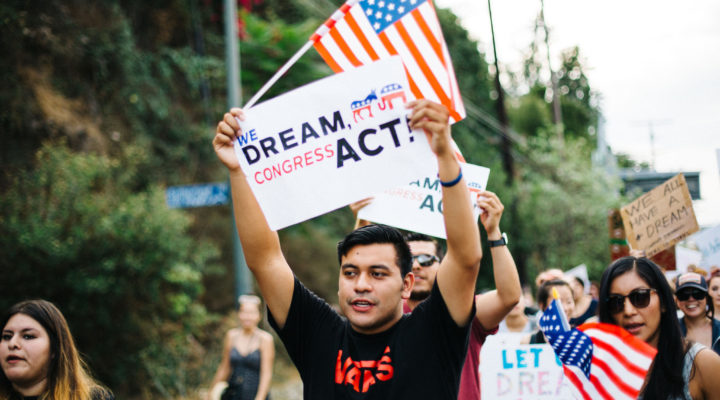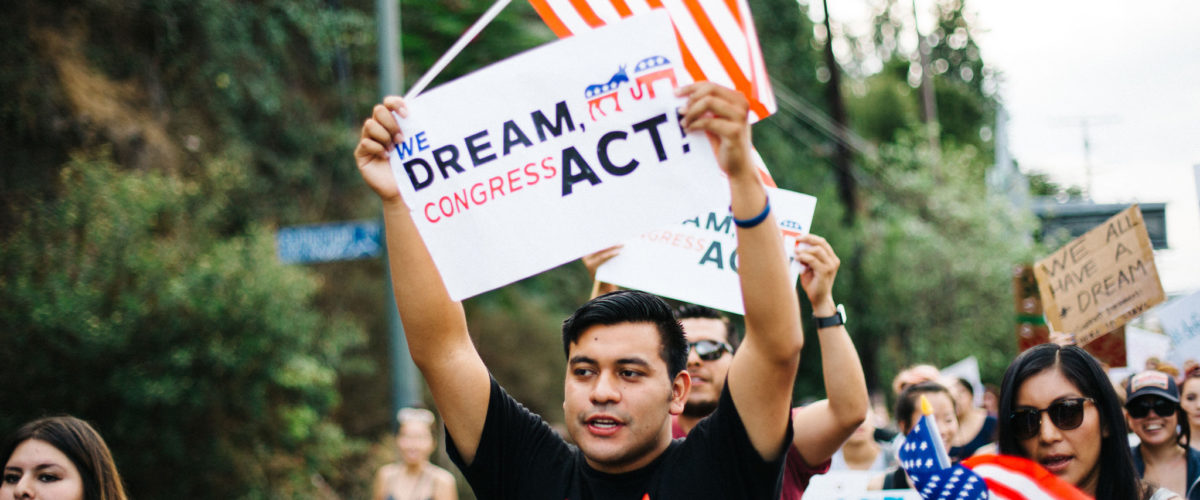When two Baptist ministers launched a legal aid ministry for immigrants in Virginia in the fall of 2016, it was aimed largely at helping Latinos attain and maintain legal residency.
But Donald Trump’s election a couple months later, and his high-profile immigration crackdown since taking office, has slowed demand for Greg and Sue Smith’s LUCHA Immigration Legal Services in Fredericksburg, Va.
The Smiths have heard from their own clients and from other legal aid clinics that immigrants are shunning legal help for residency and other issues. They are concerned it could ultimately imperil their residency.
“In the immigrant community the fear is if they raise their heads … they could get caught, detained and deported,” Greg Smith said.

Sue and Greg Smith
What LUCHA and its clients are seeing seems to result from increasing federal hostility toward immigrants living in the U.S., including those in the country legally, Smith and other experts say.
In addition to arrests and deportations, some also are experiencing increased red tape in services once considered relatively routine, such as applying for green cards and employment eligibility.
“What is changing is that the process is slowing down,” said Greg Smith. “It seems like a longer process to get your paperwork done and to get approval notices back.”
The Smiths, Cooperative Baptist Fellowship field personnel who served previously as missionaries in Latin America, founded LUCHA Ministries in 2004 to serve the material, social and spiritual needs of Latino immigrants and other marginalized people in the Northern Virginia area.
They added the legal ministry to help Latino and other immigrants navigate the U.S. Justice Department’s Board of Immigration Appeals.
The board is the DOJ’s leading administrative body for applying and interpreting immigrant law. It also certifies nonprofits and ministries to provide certain legal services that do not require attorney representation.
The Smiths underwent a 40-hour legal training program to become accredited representatives through the board.
But it’s been slow going almost since the outset, Greg Smith said.
One of the areas LUCHA sought to concentrate was on helping young immigrants obtain DACA — Deferred Action for Childhood Arrivals.
Commonly known as Dreamers, those eligible for the Obama-era act had to arrive in the United States before age 16 and must have resided within its borders since June 2015.
“We had geared up to do a lot of DACA,” Smith said. “That’s almost completely went away.”
That’s in part because the Trump administration suspended the act for new applicants in September. The only activity on that front is from those who are eligible to renew their Dreamer status.
Other services, such as filing for green cards and permanent residency or to travel outside the United States, have also seen less demand.
“In November 2016 people began to back off somewhat from exploring options afraid that if they expose themselves, it could be used against them,” Smith said.
A legal aid society in the region has reported they are seeing no new immigrant clients requesting help under the Violence Against Women Act. The act provides paths to legal residency for victims of domestic violence, he said.
“They said it appears fewer and fewer Latinos are reporting crimes to law enforcement,” Smith said. “I would imagine that’s happening across the nation.”
It is happening thanks to reports that sweeps and raids aren’t the only ways immigrants are being detained, said Randy Capps, director of research for U.S. programs for the Migration Policy Institute, a non-partisan and nonprofit think tank based in Washington.
“They have been arresting some people who have been applying for immigration benefits,” Capps said. “That could have a chilling effect.”

Randy Capps (Photo/Migration Policy Institute)
Still others have been picked up after reporting crimes, either as victims or witnesses.
“Those kinds of arrests breed a lot of fear and mistrust in immigrant communities,” Capps said.
It’s also led many legal services agencies to switch from DACA and naturalization work to immigration deportation defense, he said.
At LUCHA, some additional emphasis is being placed on helping immigrants with Temporary Protected Status, or TPS.
The status grants temporary legal residency to immigrants whose nations have experienced civil war, persecutions and catastrophic natural disasters. The Trump administration is terminating the designation for some nationalities, including those from El Salvador and Haiti.
On Saturday, LUCHA Immigration Legal Services and Immigrant’s Home will host a half-day TPS re-registration clinic with the Salvadoran Consulate in Virginia.
TPS holders also will be invited to speak with LUCHA about services beyond TPS, including finding ways to remain in the U.S. if their temporary protected coverage ends, Smith said.
“If they have a family member with U.S. citizenship or a green card, they might be able to adjust their status through them,” he said.
But the slow-down in interest and the 2020 expiration of LUCHA’s legal aid accreditation will lead the Smiths to re-evaluate their future involvement in that kind of ministry, Smith said.
Smith said his own accreditation expires in 2019. “I will have to make a decision whether or not to renew it.”
The main thing is to avoid giving into fear-based reactions.
“We should not live our lives based on fear. Trust in God is not compatible with unfounded fear and I think most of the fear (about immigration and immigrants) is unfounded,” Smith said.
“We live in an age of fear and very little trust,” he added. “That’s how the climate strikes me right now.”


